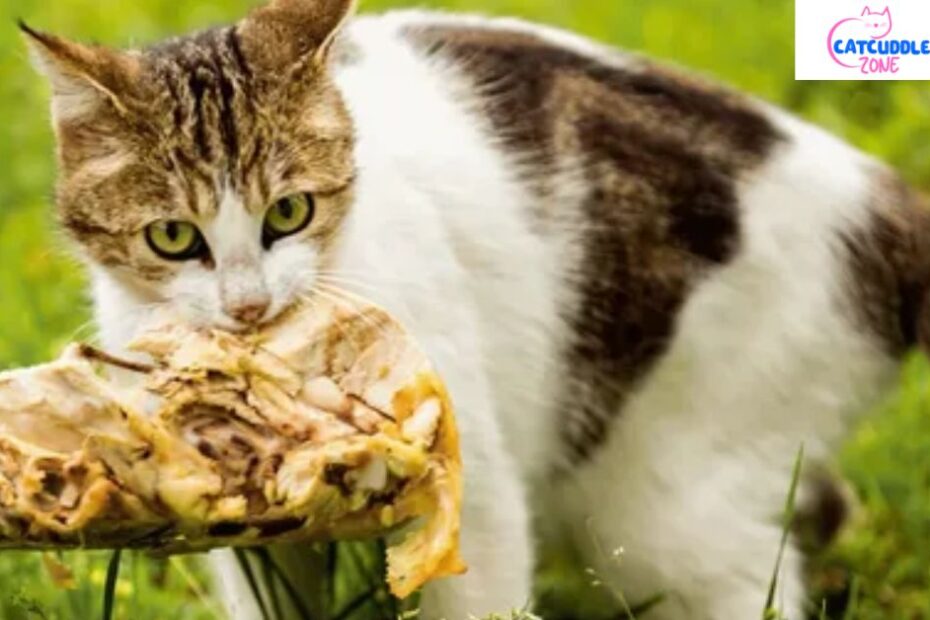If you’ve ever watched your can cats eat flies, you may wonder, “Is this safe?” While flies aren’t toxic to cats, they can carry parasites like coccidia or bacteria from rotting food. Most healthy cats won’t get sick from an occasional fly, but frequent fly ingestion increases risks like stomach upset or infections. Cats hunting flies is normal—it’s instinct, not hunger. However, some insects (like fireflies) are dangerous.
To keep your pet safe, minimize flies indoors and offer interactive toys instead. If your cat vomits after eating a fly, consult your vet. Understanding these risks helps ensure your feline stays happy and healthy while indulging their natural hunting urges.
Is It Safe for Cats to Eat Flies?
Fleas are not harmful to the cats in general, but they are not nutritious either. Fly-borne illnesses are the most significant ones. Fruit flies will land on spoiled foodstuffs, trash bins or animal offal and collect dangerous bacteria such as Salmonella. When an infected fly is consumed by your cat, there is a risk of the cat having an upset stomach.
The other problem is the insecticide-treated flies. Assuming that a fly has been exposed to pesticides, small quantities of poison may end up in the mouth of your cat. One fly may not be harmful,but there is a possibility that when one is exposed to it then there will be the danger of getting sick. When your cat eats a fly, keep them under observation all the time.
Why Do Cats Chase and Eat Flies?
Chasing flies gives them time to utilize their fighting instincts, as they are born predators. Even well-fed cats will jump on bugs, as it is a source of fun and stimulation. This habit is widespread among indoor cats who lack real prey to hunt.
Some cats catch flies but don’t eat them. Others swallow them whole. It all depends on their personality. If your cat obsessively hunts flies, they might need more playtime or interactive toys to keep them busy.
Can Cats Get Sick from Eating Flies?
Indeed, flies are capable of making cats sick. The most dangerous is the fly coccidiosis, a parasitic disease that leads to diarrhea, and in particular, kittens. Roundworm eggs can also be transmitted by flies through intestinal worms.
Bacterial infections are another issue. On the one hand, flies are likely to transfer germs that have been found in garbage or dead animals. In case your cat throws up following consumption of a fly, there is a possibility that it is consuming something dangerous. Be on the lookout to see symptoms such as lethargy or lack of appetite.
What Insects Are Harmful to Cats?
Not all bugs are safe. Here’s a quick comparison:
| Safe Insects | Dangerous Insects |
| Houseflies | Fireflies (toxic) |
| Moths | Bees & wasps (can sting) |
| Crickets | Venomous spiders |
| Grasshoppers | Cockroaches (may carry pesticides) |
Fireflies have toxins that are fatal to cats. Allergies may be caused by bees and wasps. In case your cat consumes a harmful insect, contact your vet right away.
When Should You Take Your Cat to the Vet After Eating a Fly?
Most of the time, a cat eating a fly is nothing to worry about. But you should see a vet if your cat shows:
- Severe vomiting or diarrhea
- Swelling around the mouth (from stings)
- Lethargy or refusal to eat
- Tremors or drooling (signs of poisoning)
If your cat ate a fly and seems sick, don’t wait—get professional help.
How to Stop Your Cat from Eating Flies
The easiest method of preventing it is to exclude flies in your house. Put window screens and non-toxic fly traps. To keep flies away, clean bowls with food in them and garbage cans frequently.
A cat can also be distracted by toys. Feather wands, laser pointers < a href=”/laser” > < /a >, and puzzle feeders provide a safer way for them to hunt. If you have a cat who is crazy for chasing flies, maybe you need to give them a little more play time.

What If My Cat Keeps Eating Flies?
Some cats just love hunting bugs. If your cat won’t stop eating flies, try these tips:
- Increase playtime with interactive toys.
- Use a cat-proof fly zapper (safe for pets).
- Consult a vet if the behavior seems compulsive.
A bored cat will chase anything that moves. Keeping them entertained reduces fly-hunting.
Safe & Unsafe Bugs for Cats
Here’s a quick guide to which bugs are okay and which are dangerous:
✅ Safe: Houseflies, moths, crickets, grasshoppers.
❌ Unsafe: Fireflies, bees, wasps, venomous spiders, cockroaches.
If you’re unsure whether a bug is toxic, keep your cat away from it.
Conclusion
Then, is it possible to feed the flies to cats? It is not risk-free, yes. Although the majority of the cats will eat flies and end up fine, some will develop parasites or stomach problems. The most appropriate strategy is to reduce the presence of flies in your residence and offer some less hazardous precepts of hunting.
(FAQs)
Can flies give cats worms?
Yes, flies could transmit parasite eggs, such as the roundworm or cavity parasites that can cause infection in cats when in the mouth.
What should I do if my cat eats a fly?
Keep an eye out for diarrhoea and vomiting; if the symptoms arise, contact your vet.
Are flies poisonous to cats?
Flies are not toxic most of the time, but flies that have been sprayed with pesticides or toxic insecticides, such as fireflies, may be poisonous.
Why does my cat love chasing flies?
It is instinctual—cats kill flies for mental satisfaction, not food.
How can I stop my cat from eating flies?
Place screens in windows, give interactive toys, and make your home fly-free.

Pingback: Can Cats Eat Walnuts? Complete Vet-Approved Guide